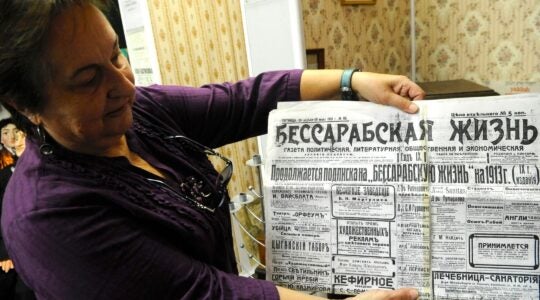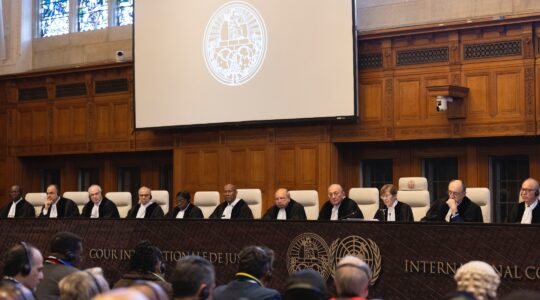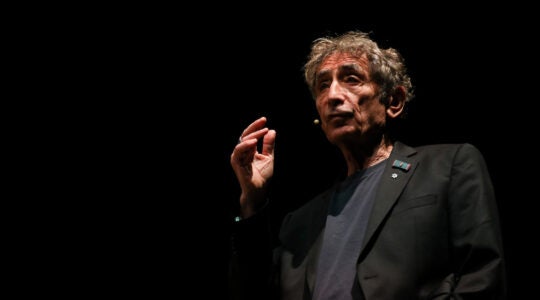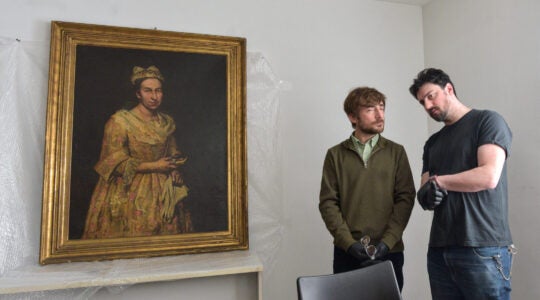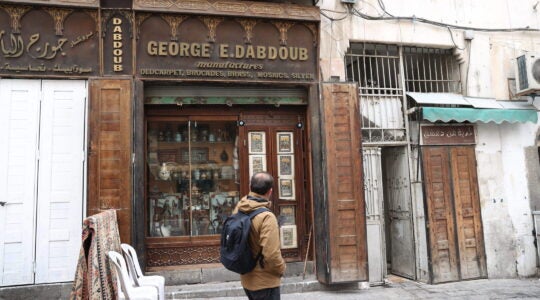(JTA) — The European Jewish Congress opened a crisis management center in Brussels and a website offering updates about the deadly shooting that took place at the city’s Jewish museum.
The center became operational in the Belgian capital hours after an identified man on Saturday afternoon killed three people at Brussels’ Jewish Museum of Belgium and fled the scene along with a driver who brought him there in an Audi car, according to the Belgian League against Anti-Semitism, or LBCA.
Belgian Interior Minister Joelle Milquet said at a press conference that police had a suspect in custody and that security around Jewish institutions had been increased. The identity of the suspect, the three fatalities and a fourth person who was critically injured in the attack were not made known immediately.
The news site HLN.be reported on Saturday night that police no longer regard the person they detained as a suspect and were hunting for the culprits.
The European Jewish Congress has been developing a crisis management response since Mohammed Merah, an Islamist radical, killed four Jews in Toulouse two years ago, Arie Zuckerman of the congress told JTA.
“We opened up a crisis management center in Brussels to deal with all aspects of this attack, which seems to be anti-Semitic, including contact between Jewish communities in Europe, within the Jewish community of Belgium and with media and police,” he said.
Several leaders of the congress’ crisis management team, the Security and Crisis Center, travelled to Brussels from abroad to help coordinate the activity, he added.
Updates on the attack are available on the center’s website, which also contains a telephone hotline.
Leaders from several countries reacted to the attack.
“This act of murder is the result of constant incitement against Jews and their state,” Israeli Prime Minister Benjamin Netanyahu said in a statement hours after the attack. “Slander and lies against the State of Israel continue to be heard on European soil even as the crimes against humanity and acts of murder being perpetrated in our region are systematically ignored,” he added.
Elio di Rupo, Belgium’s prime minister, said in a statement that the museum “is a symbolic place,” adding that the Belgian government “expresses its support of the Jewish community in Belgium and its representative Jewish groups.”
The museum is one of the few Jewish institutions in the Belgian capital which do not receive constant police protection, according to Claude Moniquet, a former agent for France’s spy agency who heads the European Strategic Intelligence and Security Center, a Brussels-based think tank.
European Jewish Congress President Moshe Kantor said the incident demonstrated the need for better coordination on the pan-European level for preventing attacks on Jews.
“The EJC has been warning for over two years, since the murderous terror attack at the Jewish school in Toulouse, that such acts will continue if no additional resources are put into place to guarantee the security of our communities, to share intelligence and law enforcement cooperation and tougher punishments,” he said in a statement.
JTA has documented Jewish history in real-time for over a century. Keep our journalism strong by joining us in supporting independent, award-winning reporting.
